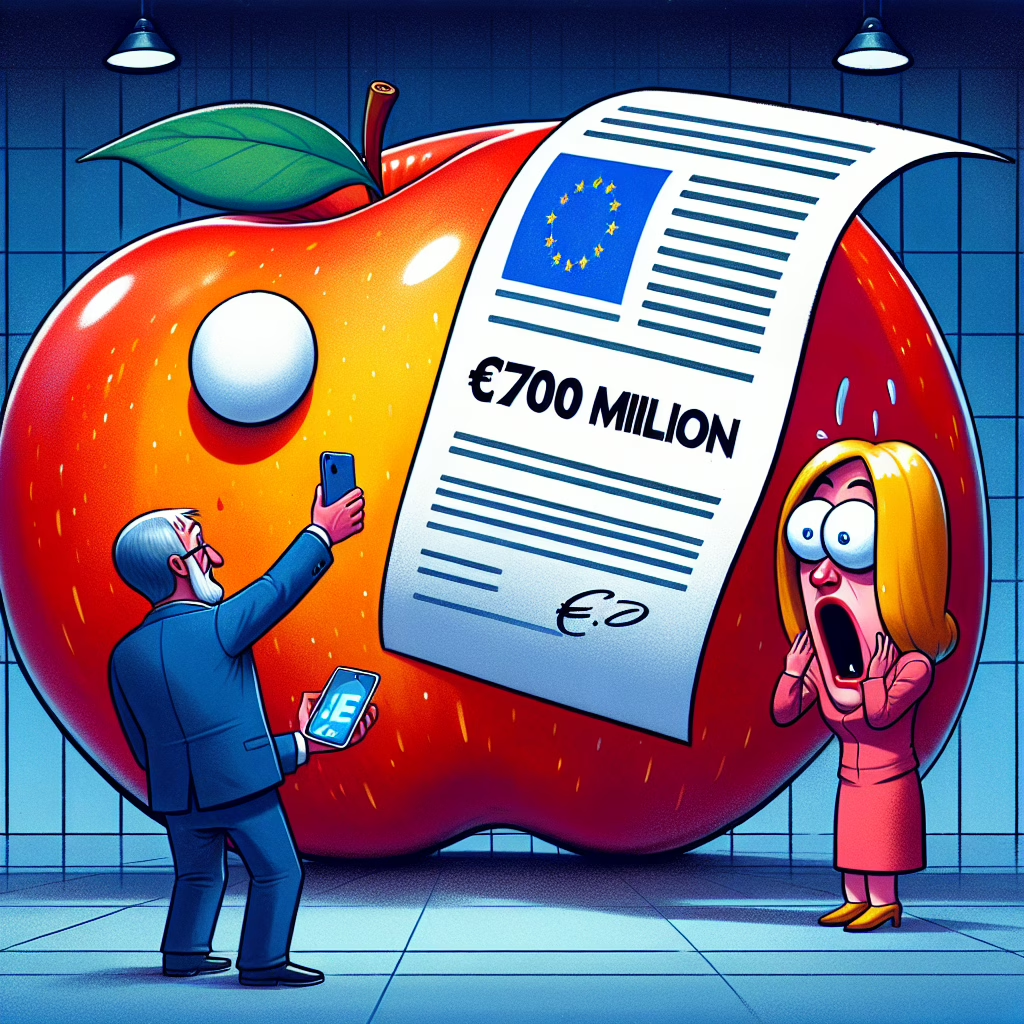In a world where tech giants like Apple and Meta appear to be engaging in a high-stakes game of Monopoly, the European Union has made its presence known by imposing a staggering €700 million fine on these corporate titans. Yes, you read that correctly! While many of us struggle to manage student loans, these companies are grappling with fines that seem almost surreal.
The Fine Details: Why €700 Million?
The hefty fines stem from a series of violations that are enough to make even casual social media users raise an eyebrow. Specifically, Apple and Meta were found guilty of not complying with EU regulations on user privacy, effectively mishandling user data. They were caught in the age-old game of ‘who can keep your data the longest without informing you.’
Imagine being at a party where everyone is sharing secrets, but only a few guests are hogging all the juicy gossip while keeping it to themselves. That’s essentially the situation at hand. The EU decided that enough was enough and took action against these giants.
What Does This Mean for Privacy?
These fines represent more than just a slap on the wrist; they highlight a global shift toward stricter privacy regulations. As we approach 2025, consumers are becoming increasingly aware of their rights regarding personal data. So, what should you take away from this? It’s time to revisit and update those privacy settings!
With every app update, you often receive reminders about data collection practices. It’s as if tech companies expect users to thoroughly read the terms and conditions—who has time for that? Now is the moment to genuinely consider what you are agreeing to.
Apple vs. Meta: A Tale of Two Giants
Let’s discuss the two main players in this legal showdown: Apple and Meta. Both companies have made strides in promoting privacy features, yet it seems they still have a few laps to run on the compliance track.
Apple, celebrated for its elegant devices and clever marketing, has positioned itself as a champion of user privacy. However, this fine puts their reputation to the test. On the other hand, Meta, which operates a vast social media empire that includes Facebook, Instagram, and WhatsApp, has often found itself under scrutiny regarding data handling practices.
This €700 million fine may appear insignificant to these billion-dollar corporations, but it sends a clear message: follow the rules or face serious consequences! Perhaps next time, corporate leaders will think twice before treating legal matters like an episode of “Law & Order.”
The Ripple Effect on Tech Companies
This momentous ruling has implications beyond just Apple and Meta; it sets a new precedent for tech companies worldwide. If you’re running a startup or simply dreaming about launching your own app, take note!
Following this ruling, other companies will likely start to reevaluate their data practices to avoid similar penalties. It’s akin to one student receiving detention for chatting during class; suddenly, a hush falls over the rest!
What Can You Do?
If you’re feeling overwhelmed by all these changes (and who isn’t?), here are some quick tips to keep your data safe:
- Review Privacy Settings: Don’t hesitate! Explore those settings and adjust them to control who sees what.
- Stay Informed: Keep up with tech news (such as this one!) to understand how your favorite apps handle your data.
- Be Cautious: Think twice before granting permissions that seem excessive—does your flashlight really need access to your location?
Staying informed is crucial; after all, knowledge is power! And who wouldn’t want to wield power over their own data?
A New Era of Accountability
This fine is not merely about the financial penalty; it symbolizes a new era where accountability in tech is paramount. As we navigate through 2025, expect an influx of regulations that will hold tech giants accountable. They might need to hire additional legal counsel or even invest in some quality public relations training!
The bottom line? The EU isn’t playing games when it comes to privacy regulations. So let’s raise our glasses (or smartphones) to improved practices in the future!
What do you think about these fines? Are they excessively harsh or just what the industry needs? We’d love to hear your thoughts below!

